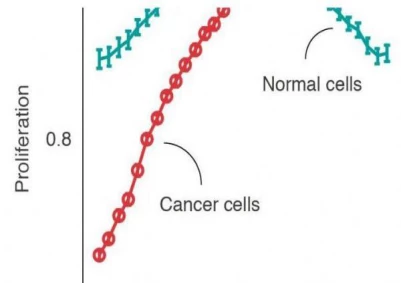Studies have found that lowering the pH of cells identifies therapeutic targets that effectively attack cancer cells

Studies have found that lowering the pH of cells identifies therapeutic targets that effectively attack cancer cells

Copyright © iCell Bioscience Inc, Shanghai 2018-2019
Recently, a research report published in the international magazine Nature Communications, scientists from the Barcelona Institute of Biomedical Research have developed a new computer model that can help researchers by reducing the pH inside the cell. Identify therapeutic targets that effectively attack cancer cells.

Cancer cells can acidify the surrounding environment, while cancer cells are often alkalized. In principle, this anomaly can hinder the development and proliferation of cancer cells. However, this may be the opposite in cancer. In the study, the researchers found that when the pH inside the cancer cells decreases, the proliferation rate of the cancer cells decreases, and the cells become more inactive, so that the cancer cells become more "acid", which may be It will provide opportunities for researchers to develop new cancer therapies.
Using a number of previous biochemical analysis data and a database of cancer cell gene expression, the researchers developed a new computer model that can help analyze how pH changes affect nearly 2000 metabolic enzymes in cancer cells. Class activity. Understanding the changes in cellular metabolic pathways in different pH environments can help elucidate the survival mechanisms of cancer cells in an acidic environment.
In this study, the researchers confirmed the initial hypothesis that if cancer cells can proliferate easily in an alkaline environment, they may be very sensitive to acidic environments, suggesting that scientists consider cancer cells themselves. Acidification, combined with more traditional treatments as a better means of treating cancer.
In addition, the researchers identified specific metabolic enzymes that work synergistically with intracellular acidity during cancer development, so these enzymes seem to be a therapeutic target for a possibility, indeed, Researchers are currently using breast cancer cell lines in the laboratory to detect five potential therapeutic targets, and have achieved good results.
Finally, the researchers said that some of the targets identified in this study can be tested in animal organisms, and more advanced preclinical trials are expected. Later, they will be explored through more in-depth research to develop effective cancer control new treatments.
 Loading ....
Loading ....
